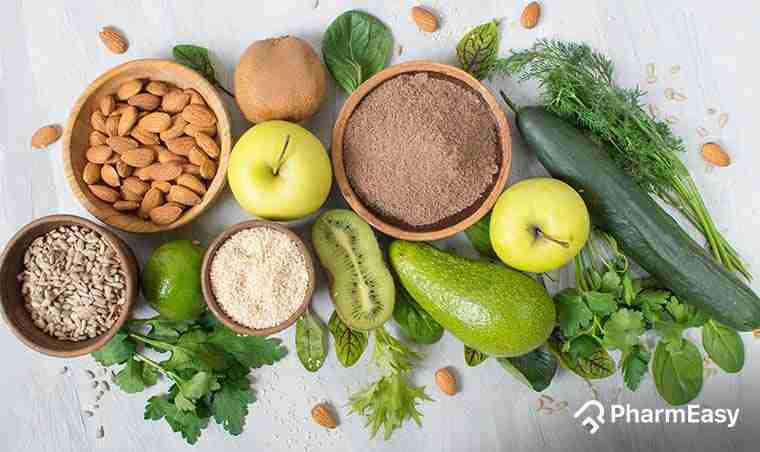
Top Vegetarian Protein Powerhouses: A Comprehensive Guide
In the world of nutrition, protein reigns supreme as the building block of life, essential for muscle repair, immune function, and overall vitality. While many associate protein with animal products, vegetarians have an array of plant-based options that are not only rich in protein but also brimming with essential nutrients. In this comprehensive guide, we unveil the top vegetarian protein powerhouses, providing you with a diverse array of options to fuel your body and elevate your health.
1. Quinoa: The Complete Protein
Quinoa, often hailed as a superfood, stands out as one of the few plant-based sources that provide all nine essential amino acids, making it a complete protein. With a nutty flavor and a versatile nature, quinoa can be used in salads, stir-fries, or as a base for hearty grain bowls. One cup of cooked quinoa packs around 8 grams of protein, along with a healthy dose of fiber, iron, and magnesium.
2. Lentils: Nutrient-Dense Legumes
Lentils, a staple in many cuisines worldwide, are a powerhouse of nutrition. These tiny legumes boast a remarkable protein content of about 18 grams per cooked cup, making them an excellent choice for vegetarians. Whether incorporated into soups, stews, or salads, lentils offer a hearty and satisfying addition to any meal. Moreover, they are rich in fiber, folate, and iron, promoting heart health and supporting optimal digestion.
3. Chickpeas: Versatile and Protein-Rich
Chickpeas, also known as garbanzo beans, are beloved for their versatility and distinct nutty flavor. Whether roasted for a crunchy snack, blended into creamy hummus, or tossed into salads and curries, chickpeas serve as a delicious and protein-packed addition to any dish. With approximately 15 grams of protein per cooked cup, along with fiber, vitamins, and minerals, chickpeas offer a wholesome boost to vegetarian diets.
4. Tofu: A Soy-Powered Protein Source
Tofu, derived from soybeans, has long been a cornerstone of vegetarian and vegan diets. This soy-based product is prized for its high protein content, providing around 20 grams per cup of firm tofu. Tofu’s neutral taste and ability to absorb flavors make it a versatile ingredient in both savory and sweet dishes. Whether grilled, stir-fried, or blended into smoothies, tofu offers a convenient and nutritious way to meet your protein needs while enjoying a plant-based lifestyle.
5. Edamame: Young Soybeans Packed with Protein
Edamame, the young and tender soybeans harvested before they fully mature, are a popular appetizer in Japanese cuisine. These vibrant green pods not only make for a delicious snack but also serve as a nutritious source of protein, delivering approximately 17 grams per cooked cup. Enjoyed steamed, boiled, or added to salads and stir-fries, edamame offers a satisfying crunch and a nutritional punch, boasting an array of vitamins, minerals, and antioxidants.
- Seitan: The Wheat-Based Protein Powerhouse
Seitan, also known as wheat gluten or wheat meat, is a protein-rich food derived from gluten, the protein found in wheat. Although not suitable for individuals with gluten sensitivities or celiac disease, seitan offers a substantial protein boost to vegetarian diets, providing approximately 25 grams of protein per 3-ounce serving. With its chewy texture and ability to absorb flavors, seitan serves as a meaty substitute in various dishes, from stir-fries to sandwiches, offering a savory and satisfying experience for plant-based eaters.
- Tempeh: Fermented Soybean Superfood
Tempeh, a traditional Indonesian food, is made from fermented soybeans bound together into a firm cake-like texture. This probiotic-rich food is not only easy to digest but also boasts an impressive protein content of around 30 grams per cup. With a nutty flavor and a firm texture, tempeh can be sliced, marinated, and grilled to perfection, offering a delicious and nutritious alternative to meat. Additionally, tempeh is a good source of fiber, vitamins, and minerals, making it a valuable addition to vegetarian diets.
- Chia Seeds: Tiny Seeds, Big Nutrition
Chia seeds may be small in size, but they pack a nutritional punch, including a notable amount of protein. With approximately 6 grams of protein per ounce, these tiny seeds are a convenient addition to smoothies, yogurt, oatmeal, or baked goods. Chia seeds are also rich in omega-3 fatty acids, fiber, and antioxidants, supporting heart health, promoting satiety, and enhancing overall well-being.
9. Hemp Seeds: A Nutrient-Dense Powerhouse
Hemp seeds, derived from the Cannabis sativa plant, are gaining popularity as a nutritious addition to various dishes. These tiny seeds offer an impressive protein content of around 10 grams per ounce, along with essential fatty acids, vitamins, and minerals. Whether sprinkled over salads, blended into smoothies, or incorporated into energy bars, hemp seeds provide a complete and balanced source of protein for vegetarians.
Conclusion
In conclusion, vegetarian diets can easily meet protein needs with a diverse array of plant-based sources. From quinoa and lentils to tofu and tempeh, the options are plentiful and delicious. By incorporating these protein-rich foods into meals and snacks, vegetarians can ensure optimal nutrition, supporting overall health and well-being. Whether you’re a committed vegetarian or simply looking to add more plant-based protein to your diet, these nutrient-dense powerhouses are sure to satisfy your taste buds and fuel your body for greatness.